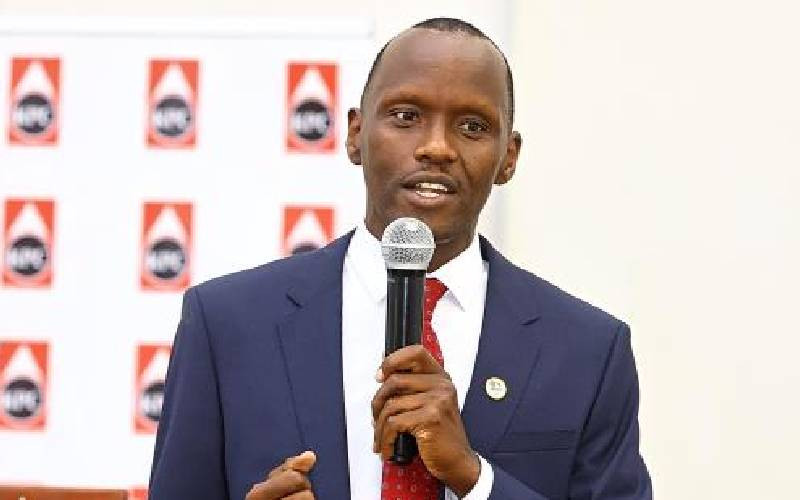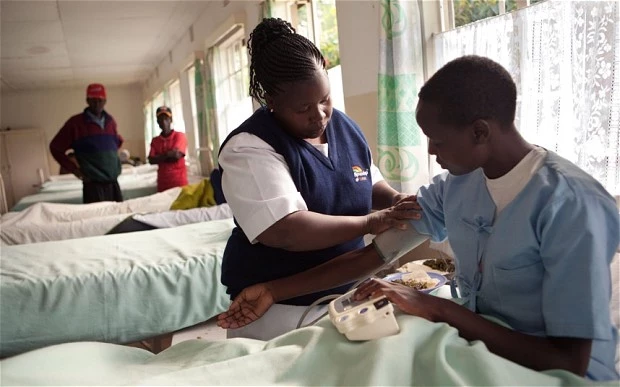The cash crunch in Government was caused by the National Treasury’s hurry to clear Government debts that are up for maturity.
This was revealed during a meeting by the Budget and Appropriation Committee, which heard that nearly half of the billions revenue that the taxman collected in the first quarter of the current financial year was spent on paying debts.
A report of the Parliamentary Budget Office (PBO) prepared and released yesterday showed that as at the end of September, the Kenya Revenue Authority had collected Sh269.7 billion, of which Sh132 billion (49.1 per cent) went to paying the debts that the country owes local and international creditors.
The meeting by the Budget Committee at Parliament Buildings was shocked when it was told that the key Government departments were starved of cash because the public debt had to be paid first, then pensions and gratuities, and then the salaries and allowances.
The cash crunch has forced the National Treasury to send counties to the commercial banks to look for cash and pay its staff and to also handle the day-to-day business.
“The distribution of available cash is not balanced, with some agencies receiving no resources leading to complains such as from the county governments where some are said to have been advised to take overdrafts from banks to cater for urgent activities,” the Parliamentary Budget Office told the lawmakers.
The MPs were so alarmed that they sought an urgent meeting with the National Treasury, but Cabinet Secretary Henry Rotich was out of the country, while the principal secretary had a double date in Parliament Buildings, first with the Public Accounts Committee on audit queries and with the Speaker of the National Assembly Justin Muturi over the delay on the release of the cash to the august House.
The worry for the PBO is that the low cash releases is likely to conspire and make sure that the country fails to meet not just the revenue targets but also the growth targets.
“The performance of revenue is still below the expected average raising doubts as to whether the Government will meet its tax revenue targets for the year,” said the mandarins who advise MPs on the budget, the economy and tax.
Also, the MPs heard that only a measly six per cent of the development budget had been released to the ministries, with the ministries of Interior, Labour and Education getting no money, not even a cent, for their development programmes. It is expected that if everything works fine, then at least 25 per cent of the development budget should be out by the lapse of the first quarter.
“The low Exchequer issues is a clear indication that absorption rate for development expenditure at the end of the financial year might be low and set targets might not be met,” the mandarins added in their report.
The chairman of the Budget and Appropriations Committee Mutava Musyimi and his deputy Mary Emaase led MPs John Mbadi (Suba), Makali Mulu (Kitui Central), Moses Kuria (Gatundu South) and Daniel Waweru (Dagoretti South) in questioning why Treasury appeared hard-pressed to handle the spending pressures.
“This is a matter of priority. When we spend, what are we spending on and why? Is there value addition to the taxpayer? It seems we gave the country a very expensive governance system and did not give it revenues. Unless we correct this, we will be firefighting all through,” said Musyimi.
Emaase said the Government had “to tighten the spending and curb wastage” if it is to survive the onslaught. Kuria and Waweru said the problem is similar to the cash crunch that hit the country in 1998, while Makali insisted that the public debt, the foreign exchange fluctuations and the failure to pump money for development will dim economic growth.
Stay informed. Subscribe to our newsletter
“The sovereign bond saved us last year, now the time has come for us to face this,” said Waweru. The MPs doubted the National Treasury’s figures, and said either the National Treasury had overestimated the revenue and growth projections and now the reality was setting in.
“How do you say you want to grow at six per cent the way the National Treasury told us, and yet as at the end of the first quarter, you don’t release money for the development budget? This is not magic, statistics don’t cheat. You can’t,” said Makali.
 The Standard Group Plc is a
multi-media organization with investments in media platforms spanning newspaper
print operations, television, radio broadcasting, digital and online services. The
Standard Group is recognized as a leading multi-media house in Kenya with a key
influence in matters of national and international interest.
The Standard Group Plc is a
multi-media organization with investments in media platforms spanning newspaper
print operations, television, radio broadcasting, digital and online services. The
Standard Group is recognized as a leading multi-media house in Kenya with a key
influence in matters of national and international interest.
 The Standard Group Plc is a
multi-media organization with investments in media platforms spanning newspaper
print operations, television, radio broadcasting, digital and online services. The
Standard Group is recognized as a leading multi-media house in Kenya with a key
influence in matters of national and international interest.
The Standard Group Plc is a
multi-media organization with investments in media platforms spanning newspaper
print operations, television, radio broadcasting, digital and online services. The
Standard Group is recognized as a leading multi-media house in Kenya with a key
influence in matters of national and international interest.









